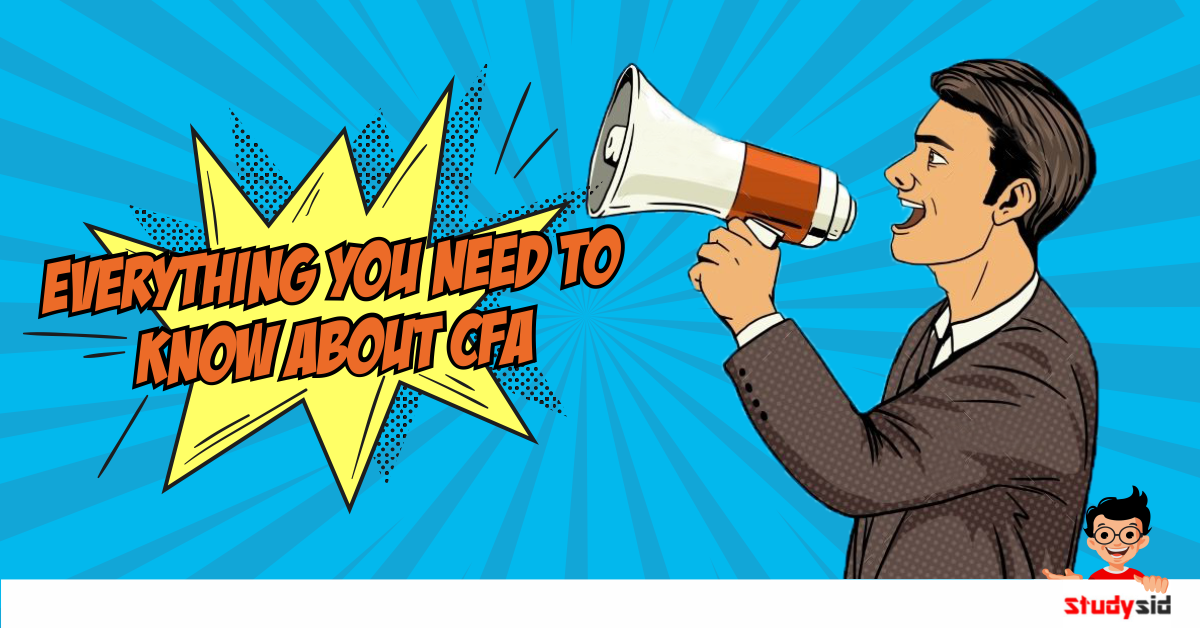About the CFA Exam
CFA program is a course that tests your knowledge in different areas regarding finance over three levels of exam. With the pass rate of 35-40% for level one exam and 45 to 50% for level two, CFA is a very competitive exam. Candidates who clear all the three levels are held in high regard by the industry.
About the Three Levels of the CFA Exam
Level 1 is about learning investment applications. While Level 2 is about applying them. Level 3 focuses on using different applications for defining investment strategy and performing portfolio management. The CFA Program includes a series of three exams, which are termed as levels.
- Level I Exam: It consists of basic knowledge and comprehension questions focused on investment tools; some questions will require analysis.
- Level II Exam: It emphasizes more complex analysis, along with a focus on valuing assets.
- Level III Exam: It requires knowledge of all the concepts and analytical methods in a variety of applications for effective portfolio management and wealth planning.
About Eligibility
To participate in a CFA program a candidate requires to hold a university degree or being in the final year of a university degree program (or equivalent as assessed by the CFA Institute), or to have a qualified and professional work experience of four years in an investment decision-making process.
Whereas, for obtaining the charter, a candidate must have a degree of an affiliated University (or equivalent) and four years of qualified, professional work experience, in addition to this the mandatory requirement is to pass all the three CFA levels that test the candidate’s knowledge of the academic portion of the CFA program. However, there is no such requirement of an accredited degree.
About the Curriculum
Each of the three levels covers the full range of topics but with a different focus. The topic focus for level one is on investment tools, level two is on asset valuation, level three is on portfolio management. The learning focus also changes with each exam, from knowledge and comprehension (level one) to application and analysis (level two) and to synthesis and evaluation (level three). The curriculum is created into 10 general topic areas that provide a framework for making investment decisions.
- Ethical and professional standards
- Quantitative methods
- Economics
- Financial reporting and analysis
- Corporate finance
- Equity investments
- Fixed income investments
- Derivatives
- Alternatively investments
- Portfolio management and wealth planning
About Fees
| Type of registration | Early bird (> ~ 9 months) |
Normal (> ~ 6 months) |
Late (< ~ 6 months) |
| Level 1 | ₹71, 500 | ₹89, 700 | ₹1, 18, 950 |
| Level 2 | ₹42, 250 | ₹60, 450 | ₹89, 700 |
| Level 3 | ₹42, 250 | ₹60, 450 | ₹89, 700 |
| Fin. Calculation | Rs. 5, 300 only | ₹5, 300 | ₹5, 300 |
| Tuition Fee | Rs. 30, 000 only | ₹30, 000 | ₹30, 000 |
| Total Fee | ₹1, 31, 300 | ₹2, 45, 900 | ₹3, 33, 650 |
| Increase over minimal fee | 0.00% | 28.54% | 74.41% |
* The above-mentioned prices are calculated at ₹65/$.
About Registration of the CFA Exam
- It starts 11 months before the exam. For instance, if you’re planning to sit for the June exam, you can start registering yourself 11 months before a year before in July. The earlier you register, the lesser the fees you have to pay (refer to the above table for details regarding fees).
- Level one candidates must pay a one-time enrolment fee plus exam registration fee.
- Level two and level three candidates need to pay only for the exam registration fee.
- All payments are done online.
- Hall tickets are distributed online in late April for the June exam and late October for the December exam. The results are declared online in the last week of July and January, for the level one June and December exams, respectively. Results of level two and level three exams (conducted only in June) are declared in the second week of August every year.
- Depending on how the students clear the exam and time their papers, they can finish all the three levels in a minimum span of 18 months (Example: level 1-December 2016, level 2-June 2017, level 3-June 2018), provided all levels are cleared in one go. According to the CFA Institute, the average time taken by a candidate is four years.
About the Scope
- A candidate who wants to pursue his/her in the portfolio management or investment analysis industry can apply for the CFA program.
- Also, a candidate who wants to shift abroad and work can also apply for the CFA program.
- A candidate who wants to pursue a career in a financial corporation can apply for the CFA program.
Clearing the exams is just one of the requirements to become a CFA charter holder. A person also needs to have at least four years of professional investment experience, be a regular member of CFA Institute and commit to abiding by the institutes’ code of ethics and standards of professional conduct. So, if you are planning to take up CFA, this is the right time to pull up your socks as the battle is uphill from here.
Good luck!



